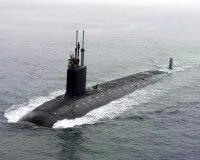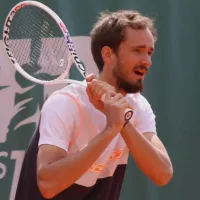Lithuania, officially the Republic of Lithuania, is a Baltic state in Europe. Situated on the eastern shore of the Baltic Sea, it borders Latvia, Belarus, Poland, and the Russian Kaliningrad Oblast. It has a maritime border with Sweden. The country covers 65,300 km2 and has a population of 2.9 million. Vilnius is its capital and largest city, with other significant cities including Kaunas, Klaipėda, Šiauliai, and Panevėžys. Lithuanians are the native population, belonging to the Baltic ethnolinguistic group and speaking Lithuanian.
1905: The Great Seimas of Vilnius demands autonomy
In 1905, the Great Seimas of Vilnius convened and passed resolutions demanding broad autonomy for Lithuania.
1909: First Lithuanian movies released
In 1909, Lithuanian cinema pioneers Antanas Račiūnas and Ladislas Starevich released their first movies.
1917: Vilnius Conference organizes and adopts resolution
In 1917, during World War I, Lithuanians organized the Vilnius Conference which adopted a resolution, featuring the aspiration for the restoration of Lithuania's sovereignty and military alliance with Germany and elected the Council of Lithuania.
February 1918: Council of Lithuania adopts Act of Independence
On February 16, 1918, the Council of Lithuania adopted the Act of Independence, restoring Lithuania as a democratic republic with its capital in Vilnius and without any past political ties.
1918: Lithuanians defend statehood
In 1918, Lithuanians defended their newly restored statehood against Bolsheviks, Bermontians, and Poles during the Lithuanian Wars of Independence.
1918: Lithuania declares independence
In 1918, towards the end of World War I, Lithuania declared independence, establishing the modern Republic of Lithuania.
1918: Women granted right to vote
In 1918, women were allowed to vote by the 1918 Constitution of Lithuania.
1919: Lithuanian authorities prevent Polish coup attempt
In 1919, the Lithuanian authorities prevented a Polish coup attempt in Lithuania.
1919: Women use the right to vote for the first time
In 1919, women in Lithuania used their newly granted right to vote for the first time.
1920: Polish forces capture Vilnius Region
In 1920, during Żeligowski's Mutiny, Polish forces captured the Vilnius Region and established the Republic of Central Lithuania, a puppet state.
1922: Republic of Central Lithuania incorporated into Poland
In 1922, the Republic of Central Lithuania, a puppet state established by Polish forces, was incorporated into Poland.
1923: Klaipėda Revolt unifies region with Lithuania
In 1923, the Klaipėda Revolt was organized, resulting in the unification of the Klaipėda Region with Lithuania.
1924: Dainų šventė started
The long-standing Dainų šventė (Lithuanian Song and Dance Festival) has been organized starting from 1924.
1925: Naktis Lietuvoje filmed
In 1925, Pranas Valuskis filmed the movie Naktis Lietuvoje (Night in Lithuania), about Lithuanian book smugglers, marking the first bright Lithuanian footprint in Hollywood.
1926: Lithuanian coup d'état installs authoritarian regime
In 1926, a Lithuanian coup d'état replaced the democratically elected government with an authoritarian regime led by Antanas Smetona.
1932: Lutheran population
Before World War II, according to Losch (1932), the Lutherans were 3.3% of the total population.
1933: Lithuanian Art Museum founded
In 1933, the Lithuanian Art Museum, the largest museum of art conservation and display in Lithuania, was founded.
1934: Lithuania holds the first mass trial of the Nazis in Europe
In 1934, Lithuania held the first mass trial of Nazis in Europe. The convicted individuals were sentenced to imprisonment in a heavy labor prison and capital punishments.
1935: Lithuania holds the first mass trial of the Nazis in Europe
In 1935, some of the individuals convicted in the first mass trial of Nazis in Europe, that was held in Lithuania, were sentenced to imprisonment in a heavy labor prison and capital punishments.
1937: Lithuania won the EuroBasket
The national basketball team of Lithuania won the EuroBasket in 1937.
1938: Lithuania accepts Polish ultimatum
In the late 1930s, Lithuania accepted the 1938 Polish ultimatum.
1939: Lithuania accepts German ultimatum and Soviet treaty
In 1939, Lithuania accepted the German ultimatum and transferred the Klaipėda Region to Nazi Germany. Also, Lithuania accepted the 1939 Soviet–Lithuanian Mutual Assistance Treaty which allowed the presence of Soviet troops in Lithuania.
1939: Lithuania hosted EuroBasket
In 1939, Lithuania hosted the EuroBasket.
1940: Lithuania accepts Soviet ultimatum and occupation
In 1940, Lithuania accepted the Soviet ultimatum and recovered Vilnius, but it resulted in the Soviet occupation of Lithuania.
1940: Romuva Cinema opened
In 1940, the Romuva Cinema was opened in Kaunas and currently is the oldest still operational cinema in Lithuania.
1940: Kaunas capital until 1940
Kaunas became the temporary capital of Lithuania where the Constituent Assembly of Lithuania was held and other primary Lithuanian institutions operated until 1940.
June 1941: Jewish population
Of the approximately 220,000 Jews who lived in Lithuania in June 1941, almost all were killed during the Holocaust.
1941: June Uprising in Lithuania and Nazi occupation
In 1941, during the June Uprising in Lithuania, there was an attempt to restore independence, but Lithuania was soon occupied by Nazi Germany.
1941: Peak of Jewish population
In 1941, the Jewish population in Lithuania reached its peak at approximately 250,000 people, making up about 10% of the population.
1944: Soviet censorship continued
After the Soviet reoccupation of Lithuania in 1944, the Soviet's censorship continued firmly controlling all artistic expressions in Lithuania, and any violations by criticizing the regime would immediately result in punishments.
1944: Lithuania re-occupied by the Soviet Union
In 1944, Lithuania was re-occupied by the Soviet Union, leading to renewed Soviet political repressions and deportations.
1953: Suppression of Lithuanian partisan resistance
By 1953, the Soviet authorities and their collaborators had suppressed the Lithuanian partisans' resistance to restore independence.
1954: Jonas Žemaitis executed
In 1954, Jonas Žemaitis, the chairman of the Union of Lithuanian Freedom Fighters, was captured and executed.
1957: Adolfas Ramanauskas executed
In 1957, Adolfas Ramanauskas, the successor to Jonas Žemaitis as chairman, was brutally tortured and executed.
1960: Wetland loss begins
Between 1960 and 1980, Lithuania lost 70% of its wetlands due to drainage and peat extraction.
1963: Creation of Vilnius photometric system
In 1963, Vytautas Straižys and his colleagues created Vilnius photometric system that is used in astronomy.
1965: First local rock bands started to emerge
Around 1965, the first local rock bands started to emerge in Lithuania, including Kertukai, Aitvarai, and Nuogi ant slenksčio in Kaunas, and Kęstutis Antanėlis, Vienuoliai, and Gėlių Vaikai in Vilnius, among others.
1965: Aukso žąsis created
In 1965, the most significant and mature Lithuanian American movie of the time, Aukso žąsis (Golden goose), was created by Birutė Pūkelevičiūtė, featuring motifs from the Brothers Grimm fairy tales.
1970: Ganelin/Tarasov/Chekasin trio established the Vilnius Jazz School
In 1970–71 the Ganelin/Tarasov/Chekasin trio established the Vilnius Jazz School, contributing to the active Jazz scene during the years of Soviet occupation.
1974: Dainų dainelė organized since 1974
The biennial children's music festival Dainų dainelė has been organized since 1974, promoting singing traditions among the youth.
1975: 2420 Čiurlionis asteroid identified
In 1975, the 2420 Čiurlionis asteroid was identified, honoring the achievements of the 19th-century composer Mikalojus Konstantinas Čiurlionis.
1979: First Krishna followers
ISKCON is the largest and the oldest movement as the first Krishna followers date to 1979.
1980: Wetland loss continues
Between 1960 and 1980, Lithuania lost 70% of its wetlands due to drainage and peat extraction.
1989: Geographic centre of Europe determined to be in Lithuania
In 1989, Jean-George Affholder determined that the geographic centre of Europe was in Lithuania, north of Vilnius.
1989: Baltic Way held
In 1989, the Baltic Way was held as part of the Sąjūdis movement's push for the restoration of independent Lithuania.
March 1990: Lithuania proclaims restoration of independence
In March 1990, Lithuania became the first Soviet republic to break away from the Soviet Union by proclaiming the restoration of its independence, a year before the formal dissolution of the Soviet Union.
April 1990: Soviets impose economic blockade on Lithuania
In April 1990, the Soviets imposed an economic blockade on Lithuania, ceasing the delivery of raw materials, which led to shortages of fuel, essential goods, and even hot water. The blockade lasted for 74 days.
1990: Regaining of independence
In 1990, after regaining its independence, Lithuania continued to enforce largely modified Soviet legal codes for approximately a decade.
1990: Lithuania agrees to cut carbon emissions
Lithuania agreed to cut carbon emissions by at least 20% of 1990 levels by 2020, and by at least 40% by 2030, along with other European Union members.
1990: Establishment of evangelical church missions
Newly arriving evangelical churches have established missions since 1990.
1990: Dainų šventė organised every four years
Since 1990, the Dainų šventė festival has been organised every four years.
January 1991: Attempted coup d'état in Lithuania
In January 1991, an attempted coup d'état was carried out using Soviet forces, resulting in 14 deaths and hundreds injured, but ultimately failed due to public resistance.
July 1991: Medininkai Massacre
On July 31, 1991, Soviet paramilitaries killed 7 Lithuanian border guards on the Belarusian border in what became known as the Medininkai Massacre.
September 1991: Lithuania joins the United Nations
On September 18, 1991, Lithuania became a member of the United Nations.
May 1992: Referendum on the President of Lithuania
A separate referendum was held on 23 May 1992 to gauge public opinion on the matter of the restoration of the President of Lithuania, and 41% of voters supported it.
October 1992: Adoption of the current Constitution of Lithuania
In October 1992, Lithuania adopted its current Constitution.
October 1992: General elections support new constitution
On 25 October 1992, Lithuania held its first independent general elections in which 56.75% of voters supported the new constitution.
October 1992: Citizens vote in referendum to adopt constitution
On October 25, 1992, Lithuanian citizens voted in a referendum to adopt the current constitution.
1992: Environmental Protection Act adopted
In 1992, Lithuania adopted the Aplinkos apsaugos įstatymas (Environmental Protection Act) to regulate environmental protection.
1992: Establishment of the Council of the Baltic Sea States in Copenhagen
In 1992, the Council of the Baltic Sea States (CBSS) was established in Copenhagen as an informal regional political forum.
February 1993: Algirdas Brazauskas becomes first president
On February 14, 1993, Algirdas Brazauskas was elected as the first president of Lithuania after the restoration of independence.
August 1993: Last units of Soviet Army leave Lithuania
On August 31, 1993, the last units of the former Soviet Army left Lithuania.
1993: Litas in circulation
Since 1993, litas had been in circulation as the national currency.
1994: Establishment of the current system of administrative division
In 1994, the current system of administrative division in Lithuania was established.
1994: Lithuania joins international operations
Since joining international operations in 1994, Lithuania has lost two soldiers.
1996: Suspension of capital punishment
In 1996, Lithuania suspended capital punishment.
1997: Foje disbanded
In 1997, the rock band Foje disbanded, after which vocalist Andrius Mamontovas remained a prominent Lithuanian performer.
1998: Elimination of capital punishment
In 1998, Lithuania officially eliminated capital punishment.
1999: Law on product safety
In 1999, the Seimas adopted a law on product safety.
1999: BC Žalgiris won Euroleague
In 1999, the historic basketball team BC Žalgiris, from Kaunas, won the European basketball league Euroleague.
2000: Health care institutions
By 2000, the vast majority of health care institutions were non-profit-making enterprises and a private sector developed, providing mostly outpatient services which are paid for out-of-pocket.
2000: Law on food
In 2000, the Seimas adopted a law on food.
2000: Modification of the administrative division to meet EU requirements
In 2000, the administrative division in Lithuania was modified to align with the requirements of the European Union.
2000: Virgilijus Alekna won gold medal in Sydney
In the 2000 Sydney games, Discus thrower Virgilijus Alekna won gold medals.
May 2001: Lithuania gains membership in the World Trade Organization
On May 31, 2001, Lithuania gained membership in the World Trade Organization.
May 2001: Lithuania joins World Trade Organization
On May 31, 2001, Lithuania joined the World Trade Organization.
2001: Baltic faith adherents
According to the 2001 census, there were 1,270 people of Baltic faith in Lithuania.
2001: Civil Code of Lithuania passed in Seimas
In 2001, the Civil Code of Lithuania was passed in Seimas.
2002: Lithuania experiences drought
In 2002, Lithuania experienced a drought, resulting in forest and peat bog fires.
2003: Criminal Code and Criminal Procedure Code passed
In 2003, Lithuania passed the Criminal Code and Criminal Procedure Code.
2003: Healthcare service reforms
In 2003, Lithuania started healthcare service reforms with the expansion of ambulatory services and primary care.
2003: Lithuania won EuroBasket
The national basketball team of Lithuania won the EuroBasket in 2003.
March 2004: Lithuania becomes a full member of NATO
In March 2004, Lithuania became a full member of NATO. Fighter jets of NATO members are deployed in Šiauliai Air Base to provide security for the Baltic airspace.
May 2004: Lithuania becomes full member of the European Union
On May 1, 2004, Lithuania became a full member of the European Union.
May 2004: European Union law becomes integral part of the Lithuanian legal system
Since May 1, 2004, the European Union law became an integral part of the Lithuanian legal system.
2004: Emigration of Lithuanians
Between 2004 and 2016, one in five Lithuanians emigrated in search of better opportunities and higher salaries. This long-term emigration, coupled with economic growth, resulted in a labor market shortage and salary growth outpacing labor efficiency growth. The start of the period, in 2004, saw the beginning of these trends.
2004: First geothermal heating plant
First geothermal heating plant (Klaipėda Geothermal Demonstration Plant) in the Baltic Sea region was built in 2004.
2004: Dalia Grybauskaitė serves as European Commissioner
In 2004, Dalia Grybauskaitė served as European Commissioner for Financial Programming and the Budget within the José Manuel Barroso-led Commission.
2004: Genetic analysis of MtDNA
In 2004, an analysis of MtDNA revealed that Lithuanians are genetically close to the Slavic and Finno-Ugric speaking populations of northern and eastern Europe.
2004: Virgilijus Alekna won gold medal in Athens
In the 2004 Athens games, Discus thrower Virgilijus Alekna won gold medals.
2004: Accession to the European Union
Lithuania's accession to the European Union in 2004 marked the beginning of a new era for agriculture in the country.
2004: Closure of Unit No. 1 of Ignalina Nuclear Power Plant
Unit No. 1 of the Ignalina Nuclear Power Plant was closed in 2004 as a condition of Lithuania's entry into the European Union.
2005: Lithuania joins International Security Assistance Force in Afghanistan
Beginning in the summer of 2005, Lithuania was part of the International Security Assistance Force in Afghanistan, leading a Provincial Reconstruction Team in Chaghcharan in Ghor Province.
2005: Expansion of ambulatory services and primary care
In 2003–2005, Lithuania saw the expansion of ambulatory services and primary care as part of wider healthcare service reforms.
2005: Population decrease
The population ages 6 to 19 has decreased by 36% between 2005 and 2015.
December 2007: Lithuania joins Schengen Agreement
In December 2007, Lithuania became a member of the Schengen Agreement.
2007: Peak GDP growth rate
In 2007, Lithuania's GDP growth rate peaked at 11%.
2008: Number of Universities and Colleges
As of 2008, there were 15 public and 6 private universities as well as 16 public and 11 private colleges in Lithuania.
2008: Russo-Georgian War
During the Russo-Georgian War in 2008, President Valdas Adamkus, along with the Polish and Ukrainian presidents, traveled to Tbilisi to support Georgia, and Lithuanians collected financial aid for war victims.
2008: Financial crisis
For a long time, especially after the 2008 financial crisis, Lithuania lagged behind NATO allies in terms of defense spending.
2008: Virgilijus Alekna won bronze in Beijing
In 2008 in Beijing, Virgilijus Alekna won a bronze medal.
2008: End of compulsory conscription
In 2008, Lithuania ended compulsory conscription into the armed forces.
2008: Lithuanian Song and Dance Festival inscribed as UNESCO Masterpiece
In 2008, Lithuanian Song and Dance Festival together with its Latvian and Estonian versions was inscribed as UNESCO Masterpiece of the Oral and Intangible Heritage of Humanity.
2008: Valley development programme
In 2008, the Valley development programme was initiated in Lithuania to improve scientific research infrastructure and foster cooperation between business and science.
2009: Dalia Grybauskaitė serves as European Commissioner
In 2009, Dalia Grybauskaitė served as European Commissioner for Financial Programming and the Budget within the José Manuel Barroso-led Commission.
2009: GDP contraction due to financial crisis
In 2009, Lithuania's GDP contracted by 15% due to the 2008 financial crisis.
2009: Lithuanian Jewish Community
The Lithuanian Jewish community numbered about 4,000 at the end of 2009.
2009: Closure of Unit No. 2 of Ignalina Nuclear Power Plant
Unit No. 2 of the Ignalina Nuclear Power Plant was closed down in 2009.
2010: Unemployment rate reached 17.8%
In 2010, Lithuania's unemployment rate reached 17.8% as a result of the 2008 financial crisis.
2010: Dissolution of county governorship
In 2010, the system of county governorship (apskrities viršininkas) was dissolved, making municipalities the most important unit of administration in Lithuania.
2010: PISA report results
PISA report in 2010 found that results in math, science and reading were trailing the OECD average.
2011: English language knowledge
Around 80% of people in the 15-19 age group reported knowing English in 2011.
2011: Growth of Biotech and Life Science Sector
From 2011 to 2016, the biotech and life science sector in Lithuania experienced a yearly growth of 22%.
2011: Nebetyli sirgaliai anthem of the EuroBasket 2011 created
In 2011, Marijonas Mikutavičius created Nebetyli sirgaliai (Celebrate Basketball), the official anthem of the EuroBasket 2011.
2011: Cargo Handled at Port of Klaipėda
In 2011, the Port of Klaipėda handled 45.5 million tons of cargo, including figures from the Būtingė oil terminal.
2011: Kaunas Airport Starts Regular Cargo Traffic
Kaunas Airport, a small commercial cargo airport, started regular commercial cargo traffic in 2011.
2011: Lithuania hosted the Eurobasket
Lithuania hosted the Eurobasket in 2011.
2011: Teacher salaries increase
Teacher salaries increased significantly since 2011, but are still below the EU average.
2011: Baltic faith adherents
That number jumped to 5,118 in the 2011 census
2012: Restructuring of hospitals
In 2003–2012, the network of hospitals in Lithuania was restructured as part of wider healthcare service reforms.
2012: Rūta Meilutytė won gold medal in London
In 2012 at the London Olympics, a gold medal was won by 15-year-old swimmer Rūta Meilutytė.
2012: Referendum on Visaginas Nuclear Power Plant
In 2012, a non-binding referendum on the construction of a new Visaginas Nuclear Power Plant resulted in 63% of voters opposing the project.
2012: National Energy Independence Strategy
Long-term aims were defined in National Energy Independence strategy in 2012. It was estimated that strategic energy independence initiatives will cost €6.3–7.8 billion and provide annual savings of €0.9–1.1 billion.
2013: Lithuania assumes the presidency of the European Union
During the second half of 2013, Lithuania held the presidency of the European Union.
2013: Lithuania elected to the United Nations Security Council
In 2013, Lithuania was elected to the United Nations Security Council for a two-year term, becoming the first Baltic country elected to this post.
2013: High imprisonment rate
In 2013, Lithuania's imprisonment rate was among the highest in the EU.
2014: 76% watched national team games live
In 2014, 76% of the population watched the men's national basketball team games live.
2014: Construction of Klaipėda LNG FSRU
In 2014, the first large scale LNG import terminal (Klaipėda LNG FSRU), named Independence, in the Baltic region was built in the port of Klaipėda to break down Gazprom's natural gas monopoly.
2014: National teacher strikes
Low teacher salaries was the primary reason behind national teacher strikes in Lithuania in 2014.
2014: Lithuania participates in the British-led Joint Expeditionary Force
Since 2014, Lithuania participates in the British-led Joint Expeditionary Force.
January 2015: Adoption of the euro
On January 1, 2015, Lithuania adopted the euro as its national currency, replacing the litas.
January 2015: Lithuania joins the Eurozone
On January 1, 2015, Lithuania joined the eurozone and adopted the European Union's single currency, the Euro.
2015: Electricity Import
As of 2015, 66% of electrical power in Lithuania was imported after the decommissioning of the Ignalina Nuclear Power Plant.
2015: Equinor Supplies Natural Gas
From 2015 until 2020, Norwegian company Equinor supplies 540 million cubic metres of natural gas annually to Lithuania.
2015: Reintroduction of compulsory conscription
In 2015, Lithuania reintroduced compulsory conscription into the armed forces.
2015: Lithuania top 5 by consumption of beer per capita in Europe
In 2015, Lithuania was in the top 5 by consumption of beer per capita in Europe, with 75 active breweries.
2015: Creation of National Cyber Security Centre of Lithuania
In 2015, the National Cyber Security Centre of Lithuania was created.
2015: Launch of Electricity Interconnections
Lithuania–Sweden submarine electricity interconnection NordBalt and Lithuania–Poland electricity interconnection LitPol Link were launched at the end of 2015.
2015: National teacher strikes
Low teacher salaries was the primary reason behind national teacher strikes in Lithuania in 2015.
2015: PISA report results
PISA report in 2015 found that results in math, science and reading were trailing the OECD average.
2015: Direct election of mayors
Since 2015, mayors in Lithuania have been directly elected by the population; previously, they were appointed by the council.
2015: Mayors directly elected
Starting with 2015, the mayor in Lithuania is elected directly by the majority of residents of the municipality.
September 2016: FTTH Penetration Rate
In September 2016, Lithuania had the highest FTTH (Fiber to the home) penetration rate in Europe at 36.8%, according to the FTTH Council Europe.
2016: Emigration of Lithuanians
Between 2004 and 2016, one in five Lithuanians emigrated in search of better opportunities and higher salaries. This long-term emigration, coupled with economic growth, resulted in a labor market shortage and salary growth outpacing labor efficiency growth. The end of the period, in 2016, saw the culmination of these trends.
2016: Growth of Biotech and Life Science Sector
From 2011 to 2016, the biotech and life science sector in Lithuania experienced a yearly growth of 22%.
2016: Electricity From Renewable Sources
In 2016, 20.8% of electricity consumed in Lithuania came from renewable sources.
2016: Percentage of GDP spent for education
In 2016, 5.4% of GDP or 15.4% of total public expenditure was spent for education in Lithuania.
2016: Container deposit legislation introduced
In 2016, Lithuania introduced especially effective container deposit legislation.
2016: Lithuania's Euro health consumer index ranking
In 2016, Lithuania ranked 27th in Europe in the Euro health consumer index.
2016: Lithuania Ranked in e-participation index
In 2016, Lithuania was ranked 17th in the United Nations' e-participation index.
2016: Public debt ratio
In 2016, Lithuania's public debt ratio was 40% of GDP.
2016: Passengers Served at Vilnius Airport
In 2016, Vilnius Airport served 3.8 million passengers.
2016: Agricultural Production and Exports
In 2016, agricultural production in Lithuania amounted to €2.3 billion, with cereal crops being the largest component. Exports totaled €4,385 million, with Lithuanian-origin products accounting for €3,165 million. Agricultural and food exports represented 19% of all exports.
2016: Comparison of crime statistics with 2017
In 2016, crime statistics were compared to those of 2017. There was a decrease in thefts, serious crimes, homicides, bodily harm, and contraband cases, but an increase in crimes in electronic data and information technology security fields.
2016: Growth of Information Technology Production
In 2016, information technology production in Lithuania reached €2 billion.
2016: Increase in Organic Farming
In 2016, organic farming in Lithuania saw increased popularity, with 2539 farms certified by Ekoagros, covering 225,542 hectares. The crops included cereals (43%), perennial grasses (31%), leguminous crops (14%), and others (12%).
2016: Lithuanian Trucking Companies Orders of Trucks
Lithuanian trucking companies attracted attention in 2016 and 2017 with huge and record-breaking orders of trucks.
2016: National teacher strikes
Low teacher salaries was the primary reason behind national teacher strikes in Lithuania in 2016.
2017: Largest sectors of Lithuania's economy
As of 2017, the three largest sectors of Lithuania's economy were services (63% of GDP), industry (24%), and agriculture (3%).
2017: Financial Technology Companies enter Lithuania
In 2017, 35 financial technology companies established operations in Lithuania due to simplified procedures implemented by the government and Bank of Lithuania.
2017: Household Access to Internet
In 2017, 72% of households in Lithuania had access to the internet. This number was among the lowest in the EU, ranking 97th according to the CIA World Factbook.
2017: Foreign direct investment
In 2017, FDI into Lithuania spiked, reaching its highest ever recorded number of greenfield investment projects, and the US was the leading source country in FDI.
2017: Registered crimes in Lithuania
In 2017, Lithuania recorded 63,846 crimes, including 19,630 theft cases and 2,835 serious and very serious crimes. Homicides numbered 129, and serious bodily harm cases totaled 178. There was also an increase in crimes related to electronic data and information technology security.
2017: Mobile and Fixed Broadband Speeds Ranking
In 2017, Lithuania was ranked among the top 30 countries in the world for average mobile broadband speeds and among the top 20 for average fixed broadband speeds. It was also ranked top 7 in the list of countries by 4G LTE penetration.
2017: High packaging collection rate achieved
In 2017, Lithuania's container deposit legislation resulted in collecting 92% of all packagings.
2017: EU Penalty for Lithuanian Railways
In 2017, Lithuanian Railways (Lietuvos Geležinkeliai) received an EU penalty for violating antitrust laws and restricting competition in rail freight.
2017: Unemployment rate in Lithuania
In 2017, the unemployment rate in Lithuania was reported to be 8%.
2017: Lithuanian Trucking Companies Orders of Trucks
Lithuanian trucking companies attracted attention in 2016 and 2017 with huge and record-breaking orders of trucks.
2018: Lithuania won gold at the 2018 IIHF World Championship
In 2018 Lithuania men's national ice hockey team won gold medals at the 2018 IIHF World Championship Division I.
2018: Google sets up payment company and launch of blockchain center
In 2018, Google established a payment company in Lithuania, and Europe's first international blockchain center was launched in Vilnius.
2018: Lithuania joins CERN
In 2018, Lithuania became an Associated Member State of CERN, with two CERN incubators to be hosted in Vilnius and Kaunas.
2018: Synchronising the Baltic States' Electricity Grid
In 2018, synchronising the Baltic states' electricity grid with the Synchronous grid of Continental Europe has started.
2018: Two private museums opened
In 2018, two private museums opened: MO Museum, devoted to modern and contemporary Lithuanian art, and Tartle, exhibiting a collection of Lithuanian art heritage and artefacts.
2018: Decrease in rail freight
In 2023, Lithuania had the highest share of freight transported by rail among EU countries, at 31.7%. This has dropped over 50% since 2018, caused mainly by sanctions imposed on Belarusian exports and Russia.
2018: University merger
In early 2018, Lithuanian University of Educational Sciences and Aleksandras Stulginskis University were merged into Vytautas Magnus University.
2018: Vilnius ranked fourth
The fDI of the Financial Times ranked Vilnius fourth in the mid-sized European cities category in the 2018–19 ranking and Vilnius county was ranked 10th in the small European regions category in 2018–19.
May 2019: Gitanas Nausėda elected president
On 26 May 2019, Gitanas Nausėda was elected president of Lithuania, winning in all the municipalities of Lithuania in the second election round.
2019: Lithuania condemns the Turkish offensive into north-eastern Syria
In 2019 Lithuania condemned the Turkish offensive into north-eastern Syria.
2019: Exceeding NATO guideline of 2% in defence spending
In 2019, Lithuania increased funding, exceeding the NATO guideline of 2% in defence spending.
2019: Suicide rate
In 2019, the suicide rate in Lithuania was 20.2 per 100,000 people.
2019: First Cargo at Inland River Cargo Port
The inland river cargo port in Marvelė, linking Kaunas and Klaipėda, received its first cargo in 2019.
2020: Lithuania's defense spending
According to NATO, in 2020, Lithuania allocated 2.13% of its GDP to national defense.
2020: Renewable energy target
By 2020 at least 20% of Lithuania's total energy consumption should be from renewable energy sources.
2020: Equinor Supplies Natural Gas
From 2015 until 2020, Norwegian company Equinor supplies 540 million cubic metres of natural gas annually to Lithuania.
2021: Catholic residents
According to the 2021 census, 74.2% of residents were Catholics in Lithuania.
2021: Languages spoken in Lithuania
According to the survey carried out within the framework of the Lithuanian census of 2021, 85.33% of the population speaks Lithuanian as their native language, 6.8% are native speakers of Russian and 5.1% of Polish. As of 2021, 60.6% of residents speak Russian as a foreign language, 31.1% – English, 10.5% – Lithuanian, 8% – German, 7.9% – Polish, 1.9% – French, 2.6% – various others.
2021: Urban population
As of 2021, 68.19% of the population in Lithuania lives in urban areas.
2021: Household Access to Internet Expected to Increase
By 2021, the number of households with internet access in Lithuania is expected to increase to 77%.
2021: Fertility rate, sex ratio, and marriage age statistics
In 2021, Lithuania's total fertility rate was 1.34 children per woman. The human sex ratio was male leaning for the age categories 15-44, with 1.0352 males for every female. The mean age at first marriage in 2021 was 28.3 years for women and 30.5 years for men.
2021: Best-selling daily national newspapers in 2021
In 2021, the best-selling daily national newspapers were Lietuvos rytas (5.4% of all weekly readers), Vakaro žinios (3.2%), Kauno diena (2.9%).
2021: Age structure of the population
In 2021, the entry describes the age structure of the population in Lithuania.
2021: Tatar and Karaite population count
In 2021, there were around 2,150 registered Tatars and 196 Karaites in Lithuania.
2021: Lithuania hosted the 2021 FIFA Futsal World Cup
Lithuania hosted the 2021 FIFA Futsal World Cup, the first time Lithuania had hosted a FIFA tournament.
2021: Lithuania issues cryptocurrency licenses
Since 2021, Lithuania has issued hundreds of licenses for cryptocurrency exchange and storage operations, making it one of the leading countries in the EU in this sector.
2021: Baltic faith adherents
That number decreased to 3,917 in 2021 census.
2022: Smartphone Usage Expected to Increase
Almost 50% of Lithuanians had smartphones in 2016, a number that is expected to increase to 65% by 2022.
2022: English language studies
Around 85% of upper secondary school students were studying English in 2022.
2022: Tertiary education attainment
As of 2022, 58.15% of the population aged 25 to 34, and 33.28% of the population aged 55 to 64 had completed tertiary education in Lithuania.
2022: LIWA Develops Cargo Shipping Strategy
As of 2022, the LIWA (Lithuanian Inland Waterways Authority) is developing a strategy to resurrect cargo shipping on the Nemunas River.
2022: Median wealth per adult
As of 2022, the median wealth per adult in Lithuania was $32,000, while the mean wealth was $70,000 and the total national wealth was $147 billion.
2022: Exports equaled 88% of GDP
In 2022, Lithuania's exports equaled 88% of its GDP.
2022: Median age in Lithuania
In 2022, the median age in Lithuania was 44 years, with the median age for males at 41 and for females at 47.
2022: PISA report results
PISA report from 2022 found that results in math, science and reading were around OECD average.
2022: Vilnius ranked second
The fDI of the Financial Times ranked Vilnius second in the mid-sized European cities category in the 2022–23 ranking and Vilnius county was ranked fifth in the small European regions category in 2022–23.
2023: Increase in Chinese intelligence activity against Lithuania
According to Lithuanian intelligence agencies, in 2023 there was an increase in Chinese intelligence activity against Lithuania, including cyberespionage and increased focus on Lithuania's internal affairs and foreign policy.
2023: Life expectancy and infant mortality rate
As of 2023, life expectancy at birth in Lithuania was 76.0 years (70.6 for males and 81.6 for females), and the infant mortality rate was 2.99 per 1,000 births.
2023: Average Monthly Gross Salary
As of Q2 2023, the average monthly gross salary in Lithuania was €2,000.
2023: Decrease in imprisonment rate
By 2023, Lithuania's imprisonment rate had decreased by nearly half since 2013.
2023: Highest share of rail freight in EU
In 2023, Lithuania had the highest share of freight transported by rail among EU countries, at 31.7%.
2023: Tourism sector contribution and recovery
In 2023, the tourism sector in Lithuania contributed approximately €1.7 billion to the national economy, accounting for 2.3% of the GDP. This represents a recovery from the COVID-19 pandemic, with over 1.1 million international visitors and significant domestic tourism.
2023: Social Democrats win most local positions
The Social Democratic Party of Lithuania won the most positions in the 2023 elections with 358 municipal council seats and 17 mayors.
2023: Vilnius ranked second
The fDI of the Financial Times ranked Vilnius second in the mid-sized European cities category in the 2023 ranking and Vilnius county was ranked fifth in the small European regions category in 2023.
November 2024: Gintautas Paluckas confirmed as prime minister
In November 2024, Gintautas Paluckas was confirmed as the prime minister of Lithuania after the Social Democrats reached a coalition agreement with Union of Democrats "For Lithuania" and Dawn of Nemunas.
2024: Lithuanian Armed Forces participating in international operations
As of 2024, the Lithuanian Armed Forces had 30 soldiers and officers participating in nine international operations and European Union training missions.
2024: Seats in the European Parliament allocated to Lithuania
In 2024, Lithuania was allocated 11 seats in the European Parliament. Ordinary elections were held on a Sunday, coinciding with other EU countries, and eight political parties secured seats in the elections.
2024: Lithuanian restaurants appear in the 2024 Michelin Guide
In 2024, Lithuanian restaurants appeared in the Michelin Guide.
2024: Gitanas Nausėda re-elected president
In 2024, President Gitanas Nausėda was re-elected, winning more than 74% of the run-off votes.
2024: Ethnic Lithuanians make up the majority of the country's population
In 2024, ethnic Lithuanians comprised 82.6% of the country's residents, with notable minorities including Poles, Russians, Belarusians, and Ukrainians.
2024: Largest share of exports comprised by mineral products
In 2024, mineral products comprised the largest share of exports (14%) in Lithuania; other major sectors include machinery and appliances, electrical equipment (14%), chemical products (11%), food, beverages and tobacco products (9%).
2024: Corruption perception among Lithuanians
In the 2024 Special Eurobarometer, 24% of Lithuanians reported that corruption affects their daily lives, 83% perceived corruption as widespread, and 78% believed bribery and connections were often the easiest way to obtain public services.
2024: Lithuania's ranking in the World Happiness Report
Lithuania ranked 19th in the 2024 edition of the World Happiness Report.
2025: Global Innovation Index Ranking
In 2025, Lithuania was ranked 33rd in the Global Innovation Index.
2025: Vilnius as European Green Capital
Key urban centers such as Vilnius attract visitors due to their history and cultural offerings. Vilnius is renowned for its baroque architecture and has been recognized as the European Green Capital for 2025.
2030: Renewable energy target
By 2030 at least 27% of Lithuania's total energy consumption should be from renewable energy sources.
Mentioned in this timeline

Basketball is a team sport played on a rectangular court...
Ukraine is a country in Eastern Europe the second-largest on...
The United States of America is a federal republic located...

Google LLC is a multinational technology corporation specializing in a...
The Union of Soviet Socialist Republics USSR existed from to...

A submarine is a watercraft capable of independent operation underwater...
Trending

1 second ago IndyCar Season Opens in St. Petersburg: O'Ward and Palou in Focus.

16 seconds ago Norah O'Donnell Back on CBS Mornings, Highlights Women in 'We the Women'
30 seconds ago US approves power project between Dominican Republic and Puerto Rico, granting a permit.

60 minutes ago Medvedev to clash with Auger-Aliassime in Dubai semifinals at Duty Free Tennis.

1 hour ago Friday's Weather: Snow Returns After Brief Mildness, Lighter Winds Expected, End of Workweek.

1 hour ago Lindsay Lohan reflects on troubled teen years and rebuilding her life in Dubai.
Popular

Jesse Jackson is an American civil rights activist politician and...

Barack Obama the th U S President - was the...

Susan Rice is an American diplomat and public official prominent...

XXXTentacion born Jahseh Dwayne Ricardo Onfroy was a controversial yet...

Michael Joseph Jackson the King of Pop was a highly...

Kashyap Pramod Patel is an American lawyer who became the...